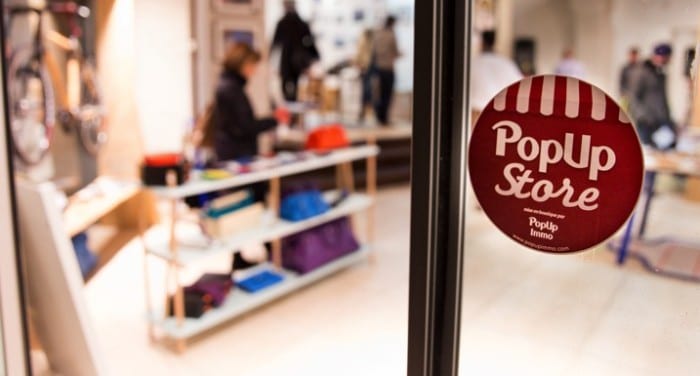
With vacancy at less than 1% in Hong Kong’s prime shopping malls, is it any wonder why brands, particularly those new to the market, are opting to grab a slice of the action by entering the market by doing a pop-up store. So what is a pop-up?
- Pop-up retail, also known as pop-up store or flash retailing, is a trend of opening short-term sales spaces.
- A pop-up retail space is a venue that is temporary — the space could be a sample sale one day and host a private cocktail party the next evening.
- The trend involves “popping-up” one day, then disappearing anywhere from one day to several months later.
- These shops, while small and temporary, can build up interest by consumer exposure.
- Pop-up retail allows a company to create a unique environment that engages their customers, as well as generates a feeling of relevance and interactivity.
- Pop-up retail also provides retailers to “prove” themselves in certain locations before the landlord decides whether they will provide them a shop on a long-term basis.
Many brands are entering Hong Kong using the pop-up store model as a way to showcase their products. Although the stores are on a small scale and in a confined space, when done correctly, they allow customers to get a taste and a feel for the brand.
Advantages for the landlord
- Limited risk. It is allows the brand to occupy a small area that would otherwise be an open void space, a vacant shop or a shop that is undergoing some alteration work. This allowsthe landlord to maximise occupancy levels and revenues in what would otherwise be deemed as “dead space”.
- Allows the brand to showcase their products and for the landlord to assess whether the brand is potentially worthy of securing a longer term store within the mall.
- Allows the landlord to assess how the brand operates, how the staff interact with the customers and assess how good their customer service is.
- Keeps the mall interesting and competitive.
Advantages to the brands
- With competition for space in Hong Kong being extremely fierce, many brands are left to wait and wait for a prime location to be made available to them. A pop-up store allows them to enter the market more quickly.
- Build rapport with the landlords.
- Showcase their products and designs to the landlord and use this as a platform to test their merchandise with the discerning Asian customer. In particular, mainland Chinese consumers, whose attention many brands are eager to capture.
- Allows the brand to be uber creative in their design in a small space.
- Pop-up stores are usually located in areas with high footfalls which provide maximum exposure and opportunity to the brand.
- Relatively low costs involved.
Take an example such as Penhaligon’s, a new-tomarket brand that set up a lovely pop-up store in Harbour City and was able to parlay the success of the store to be offered permanent stores in prime locations in Hong Kong and Macau. Goes to show there are advantages to this approach.
Disadvantages
- Large amount of investment is often required for what is a small and temporary space.
- Limited time to recoup initial investment, produce impactful marketing and moreover showcase the brand and its DNA.
- Sometimes the tenant mix may not be ideal for the brand.
- Locations are often isolated which means the brand has to work harder on the design, customer service and marketing to entice people into the pop-up store.
Will the pop-up phenomenon remain? From what we can see in terms of market fundamentals and the success many popup concepts are enjoying, the answer is an overwhelming yes. With no let up on demand from brands seeking to expand, space availability being extremely limited and rentals not looking to subside any time soon, pop-up stores will become a more and more enticing option. However it is not all good news, many pop-ups, due to their limited time period and inability for the brand to showcase a sufficient range of products, can sometimes be detrimental to a brand. Take a fashion brand for example. They have hundreds of Stock Keeping Units (SKU’s) in their normal stores but this is often limited to a 10th of that in a pop-up. This could potentially damage the brand’s reputation, perception, sales and ultimately the brand’s ability to expand in Hong Kong. Overall, however, we believe that the positives outweigh the negatives but brands still need to be conscious of what they are doing. They need to have a strategy in place and ultimately know exactly what they are trying to achieve by having a pop-up.

